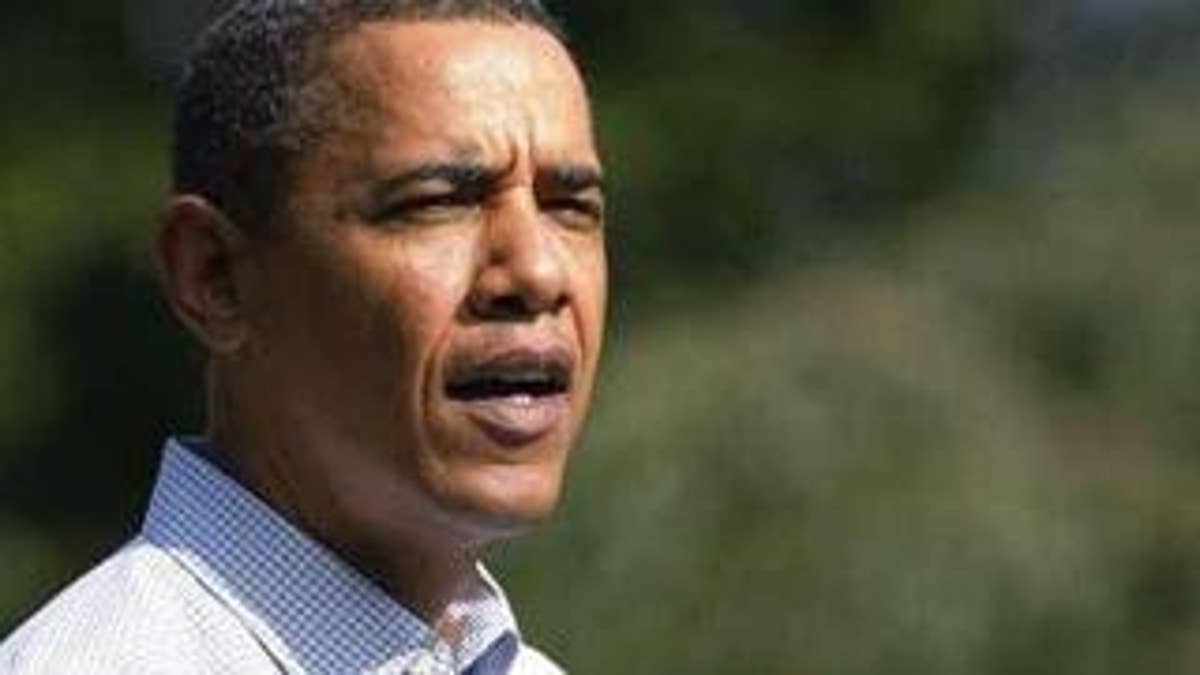
With public support waning, President Obama is at a crossroads on health care reform: Does he attempt to breathe life into Congress' efforts or do something more drastic -- offer his own solution?
The president faces these questions as Congress returns next week from a summer recess which by most accounts took a heavy toll on reform legislation.
And a growing number of lawmakers, analysts and newspapers are suggesting Congress start from scratch, and that Obama take charge by introducing his own bill.
"I think the only way the president can turn the public debate around and win over a lot of scared, confused people is to put forward his own plan, and to spend the time and capital necessary to explain it," said Democratic strategist Dan Gerstein. "There needs to be an Obama plan. ... One of the biggest mistakes the president made was subcontracting this to Congress."
While the president has played the role of cheerleader-in-chief for health care reform and submitted his own guidelines for legislation, he left the work of writing and negotiating the bill to the House and Senate.
This effort has led to splits in the Democratic Party, particularly in the House, over the cost of the bill and the inclusion of a government-run insurance plan. Meanwhile, the prolonged negotiations offered an opening for critics to mount aggressive campaigns against the most liberal versions of the bill. These criticisms no doubt played a role in the heated nature of town hall meetings held across the country in which constituents fumed about the package -- sometimes citing legitimate concerns, and sometimes citing misconceptions about the bill that were pushed by critics.
Hopes for a bipartisan plan now rest with a single committee in the Senate where progress is in question -- the alternative is for Democrats to ram through what Senate Majority Leader Harry Reid describes as a "partisan" bill.
Enter Obama?
Former Senate Majority Leader Bob Dole said Monday that Obama should have Democratic leaders introduce his version of a bill when they return from recess.
"It ought to be the Obama bill, and I believe it would really be beneficial to him," he told FOX News. "We shouldn't be debating some congressman's bill."
Dole, who called Obama;s strategy so far a "tactical error that could be corrected," first pushed the idea in a column Monday.
Analysts have long noted that Obama kept his distance from the legislative process in a clear attempt to avoid the mistakes of the Clinton administration, which was criticized for micro-managing its failed attempt at health care legislation. To take the legislative reins away from House and Senate Democrats at this point would also be a stunning rebuke to the president's own party.
But Dole said Obama's approval ratings would jump if he got more involved and took charge, and that such a turnaround could produce a "bipartisan ending" that Americans would support.
Asked about the suggestion, White House Press Secretary Robert Gibbs defended the role the president has played to date, saying he's met with key House and Senate leaders on the legislation along with pushing his own principles for the bill.
"To characterize the role the president is playing as inactive would be inaccurate," Gibbs said.
Another option for Obama is to embrace one of the bills on the table, something he has not yet done.
Gerstein said that if the Senate Finance Committee, the last of five committees to consider the legislation, reaches a compromise Obama could move the debate forward by embracing that version -- a version that may not include the controversial "public option."
But Gerstein noted that those deliberations are in doubt.
Over the weekend, Sen. Mike Enzi, R-Wyo., one of three Republican negotiators working with three Democrats on that version, slammed Democrats in the Republicans' weekly radio address.
He accused Democrats of trying to "rush" a bill through and failing to control costs.
Such statements do little to engender a sense of harmony in the delicate Senate negotiations.
If that effort at compromise fails, some lawmakers have pushed for the Senate to ram through a bill using a legislative maneuver informally called the "nuclear option," which would allow Democrats to pass the bill with a smaller majority than usual.
Republicans bristle at that possibility.
House Minority Leader John Boehner said in a recent statement that instead, Obama and congressional Democrats should "scrap this costly plan" and start over.
Some Democrats see this as a non-starter. Another option for Obama is to simply cross his fingers, continue to broadly promote health care reform principles and hope Congress can hammer out a pass-able deal by the end of the year -- or let the bills die and return to fight for it next year.
But Jason Schechter, former spokesman for President Clinton, said nobody should be signing the death certificate on health care reform.
"I don't think it's quite as dire as it seems like it's been over the past few weeks," he said, urging patience for the work of the Senate Finance Committee.
"There's been a tough road to bipartisanship," he said. "I wouldn't say that bipartisanship is dead."




